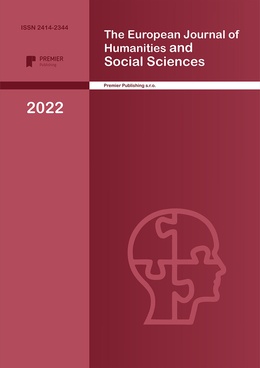CULTURAL DIFFERENCES IN TEACHING AND LEARNING - COMPARISON BETWEEN CHINA, UNITED STATES, AND UNITED KINGDOM
Authors
Xu Jiankai, Ye Yumeng

Share
Annotation
Objective: This study aims to explore cultural differences in teaching and learning among adolescents between China, United States, and United Kingdom.
Methods: This study used data from the 2015 Program for International Student Assessment (PISA). PISA is the survey of adolescent students as well as their parents and schools around the world. Student engagement and freedom in classroom are studies as two separate outcomes. Logistic regression analysis and artificial neural network are applied.
Results: After adjusting for student age, gender, parental support, and personality, the Odds Ratio also confirmed that students in UK and the U.S. are less of collective style. For example, compared with students from China, UK students are 38% likely to be collective style. Students in UK and the U.S. have more class freedom. For example, compared with students from China, UK students are 1.23 times likely to have class freedom. NN model also shows that “USA (country)” and “UK (country)” are important in predicting class freedom.
Conclusion:
Students in UK and the U.S. are less of collective style and have more class freedom than students in China.
Keywords
Authors
Xu Jiankai, Ye Yumeng

Share
References:
1. OECD. Programme for International Student Assessment (PISA) 2015 Database: Student Questionnaire data file, Organization for Economic Co-operation and Development. Paris, France (2016).
2. Garson, G. D. Interpreting neural network connection weights. Artif. Intell. Expert 6, 46–51 (1991).
3. Hofstede, G. Cultural differences in teaching and learning. Int. J. Intercult. Relations 10, 301–320 (1986).


